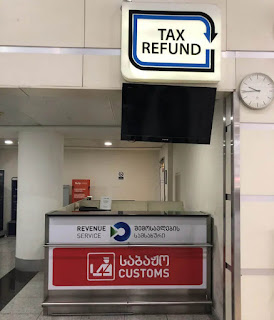Charming Beirut, Lebanon for Vegans and Wine Lovers
Beirut is a safe and peaceful paradise for vegans and wine lovers despite of the violent past.
Päivi had seen so many beautiful pictures of Beirut that her expectations were high — yet, strangely enough, she was not disappointed. Beirut stands apart from other world capitals in many ways. It is an exciting mix of different cultures: French and Arab, Christian and Muslim, settled and transitory. It has the reputation of being dangerous and yet we haven't felt so safe in many other big cities. You can walk around at any time of the day without the fear of being mugged or harassed. People are friendly and food is amazing. What more can you ask for?
We were visiting a friend and spent our days leisurely walking around the city admiring dilapidated but grand old houses, houses with bullet holes, and houses with only a facade left standing. The signs of war are visible everywhere — not least in the heavy police presence on the streets. We hadn't seen so many assault rifles for a while. When we arrived, there had been a demonstration and soldiers with commando masks were patrolling the streets. The next day we spotted two pickups armed with heavy machine guns carrying half a dozen soldiers with assault rifles. They were driving among other traffic in downtown area. Business as usual in Beirut.
Beirut for vegans and wine lovers
Like other Middle Eastern countries, Lebanon has a great variety of dishes available for vegan travellers. Staple foods include delicious Lebanese flatbread which can be enjoyed with various dips such as hummus and tahini. A more exotic and absolutely delicious option is muhammara, which is made from pomegranates and walnuts spiced with chili. Other appetisers (mezze) include stuffed grape vine leaves, tabbouleh, and mujaddara, a rice and lentil dish with sautéed onions.
Little corner stores serve delicious Lebanese pizza called manakish zaatar. Zaatar is a spice mix made of dried sumac berries, thyme, oregano, sesame seeds and some salt. Another vegan fast food delicacy is falafel with tahini sauce. It is crunchy and tasty even for die hard meat lovers.
Lebanese wine is worth tasting. Most wine is produced in Bekaa Valley at about 1.000 meters above sea level. The history of wine in Lebanon is cloudy but it likely dates from antiquity, long before the French came and colonised the country. Local red wines are characterised by sweetness and spicyness, and they are rather full-bodied than delicate. Cheers!
Visa and currency
For EU citizens, entering Lebanon is straightforward; no visa is needed. The only requirement is that you haven't visited Israel (or "The occupied Palestine" as the country is referred to in Lebanon). Coming from Cyprus, we were also asked whether we had a stamp of the occupied Cyprus territory (meaning the Turkish part) in our passports. That would have resulted in an immediate deportation. We hadn't neither of these undesirable stamps in our passports, so no questions were asked and we got in smoothly.
Lebanon has its own Lira (also called Pound), but US dollars are widely used. In April 2018, the exchange rate was 1:1.500. If you pay with dollars, you will get Liras back. Get rid of them before the airport as there are no currency exchanges and the currency is not accepted outside Lebanon. Prices were surprisingly high, at least in the capital. For example fruits and vegetables cost much more than in Cyprus.
Lebanon is still a developing country so be prepared to power cuts and bad maintenance. Cleanliness varies a lot depending on the neighbourhood, but garbage collection is clearly inefficient. Moreover, refugees sorting out the trash sometimes leave quite a mess behind. Still, Beirut has a charm all of its own and we are sure to return some day.










Comments